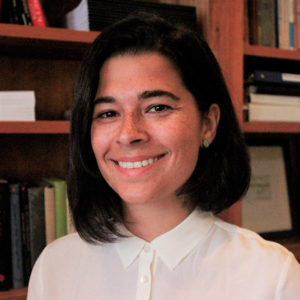Meet the New AHA Staff Member: Rachel Deitch!

Please welcome the American Humanist Association’s new social justice coordinator, Rachel Deitch!
TheHumanist.com: What is your educational and work background?
I graduated from Occidental College in Los Angeles in 2010 with an interdisciplinary major in religious studies and sociology. I then joined a congressional campaign, which brought me to an advocacy communications firm in Washington, DC.
On my first day in DC, I was assigned to photograph a new congressman’s swearing in, which is how I ended up in St. Peter’s Church on Capitol Hill alongside pews packed to capacity with Supreme Court justices, senators, and representatives—all praying to their deity of choice for a successful session of congress. By the end of my tenure with the DC firm, I was working almost exclusively on state-level HIV treatment policy and navigating the religious obstacles to funding care for people living with HIV/AIDS.
 I recently completed a master’s degree in religion, ethics, and politics at Harvard Divinity School, where my research focused on social inequality stigmas and how they influence policy. While there, I had the chance to study Arabic in Jordan, intern for UNESCO in Paris, jumpstart the school’s Humanist group, present a paper on humanism in the US military, and work for a scholar analyzing church responses to AIDS in the 1990s.
I recently completed a master’s degree in religion, ethics, and politics at Harvard Divinity School, where my research focused on social inequality stigmas and how they influence policy. While there, I had the chance to study Arabic in Jordan, intern for UNESCO in Paris, jumpstart the school’s Humanist group, present a paper on humanism in the US military, and work for a scholar analyzing church responses to AIDS in the 1990s.
TheHumanist.com: How did you first learn about humanism?
I can’t recall when I first learned about humanism. I grew up knowing humanist rabbis, obsessing about the Renaissance, and having a copy of This is Water on my bedside table. These and other memories—some explicitly linked to humanism, others not so much—make up my understanding of humanism today.
TheHumanist.com: Did you grow up in a traditional religious faith? How did it impact you?
My parents are in an interfaith marriage. I grew up knowing that they made the choice to raise their children Jewish, so that’s what it always was to me—a choice. I enjoyed going to synagogue, but I also enjoyed going to church with my grandfather. Hearing progressive sermons at temple and church gave me language to talk about social justice, for which I’m grateful. As a forever-student of religion, I still can’t pass up an opportunity to participate in a religious service.
TheHumanist.com: What interested you most about working for the American Humanist Association?
While at Harvard I had the opportunity to speak on behalf of the HDS Humanists about the impact humanism has had in my life. I addressed how humanism makes my unrelenting commitment to social justice possible: the aspirational qualities of what the world could look like if humans put in the work helps me see beyond the systemic inequalities rooted in our society to how we can disrupt and dismantle them. To get to do that for a living is a privilege.
It’s also a perk that I get to work with kind people.
TheHumanist.com: What book has influenced you the most?
Everything Judith Butler has written.
TheHumanist.com: If you could have dinner with any three people in the world (living or dead), who would they be and why?
I met Zadie Smith once, but I fangirled too hard to have a normal conversation. I’d like a “do over” with her so we could talk about her perspective on having children. I would also like to break some bread with Jesus Christ and talk to him about what his legacy looks like in 2018; I imagine he would have a strong opinion. Lastly, I’d like to have dinner with Raewyn Connell. Her work on masculinities and knowledge production has been integral to my own understanding of the world.
